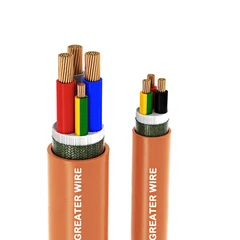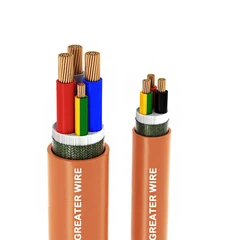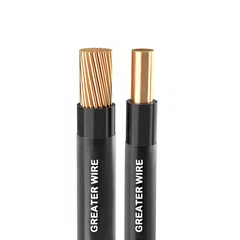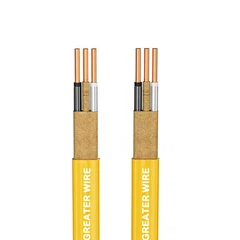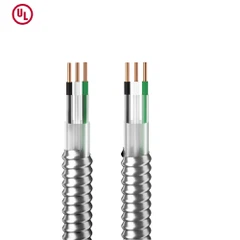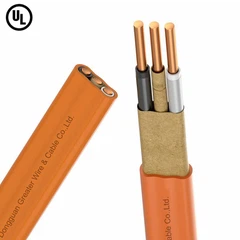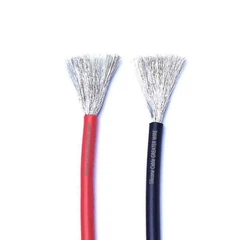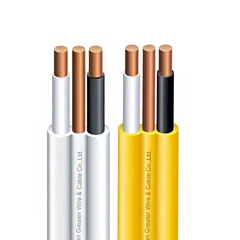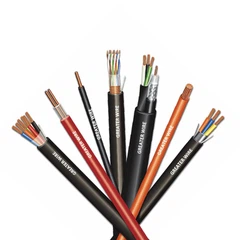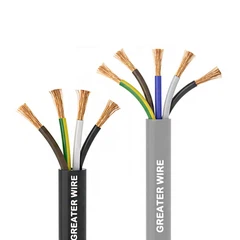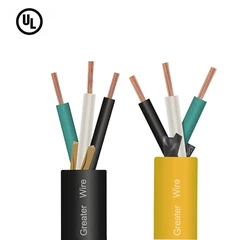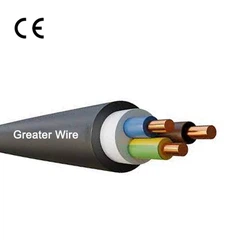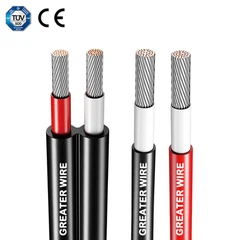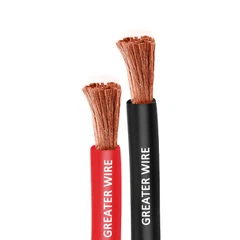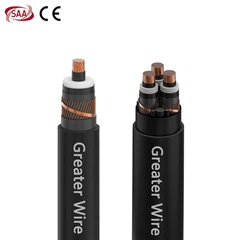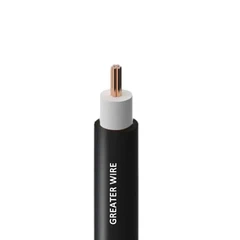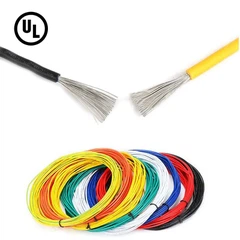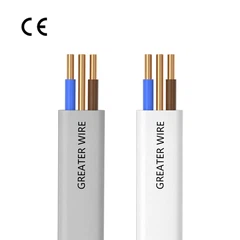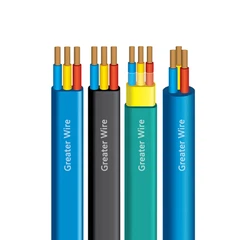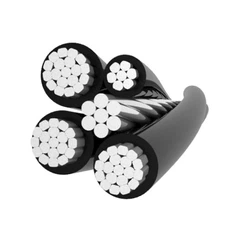In modern electrical engineering, from aerospace and automotive electronics to industrial machinery and high-precision instrumentation, the reliability of wiring is a cornerstone of system safety and performance. Among the various types of insulated wires, Teflon wire, also known as PTFE wire, has earned a reputation for exceptional thermal, chemical, and electrical performance. A common question among engineers and buyers is: "How hot is too hot for Teflon wire?" Understanding its performance, maximum temperature limits, and potential consequences of overheating is crucial for both safety and efficiency.
What is Teflon Wire?
Teflon wire consists of a finely stranded copper conductor insulated with polytetrafluoroethylene (PTFE). This material offers high-temperature resistance, chemical inertness, and superior dielectric properties. Unlike PVC or rubber insulation, PTFE maintains stable electrical performance under prolonged heat, vibration, and chemical exposure. Its flexibility allows for easy routing in complex systems without cracking or peeling, ensuring long-term reliability and consistent electrical insulation.

Maximum Temperature of Teflon Wire
The temperature rating of Teflon wire is a defining feature of its performance. Standard PTFE insulation supports continuous operation at up to 200°C, while short-term temperature spikes can be tolerated up to 260°C or slightly higher, depending on the specific wire variant. This thermal range enables Teflon wire to perform safely in environments where other wires would fail, such as engine compartments, industrial ovens, aerospace electronics, and chemical processing equipment.
Consequences of Exceeding Temperature Limits
Using Teflon wire beyond its rated temperature can lead to serious issues. Overheating can degrade the PTFE insulation, reducing dielectric strength and flexibility. This may result in short circuits, sparks, or even fire hazards. Additionally, mechanical stress from repeated thermal cycling can weaken the conductor itself, potentially leading to system failures. Ensuring operation within the specified temperature range is therefore essential for both safety and long-term performance.
Common Specifications and Applications
Teflon wire is available in a variety of gauges, insulation thicknesses, and voltage ratings, each suited for different applications. Typical specifications and uses include:
- Fine-Gauge Wire (28–24 AWG): Ideal for precision electronics, instrumentation, and signal transmission, where flexibility and small size are essential.
- Medium-Gauge Wire (22–18 AWG): Suitable for control panels, automotive sensors, and industrial equipment, providing a balance of current-carrying capacity and flexibility.
- Heavy-Gauge Wire (16–12 AWG or larger): Designed for high-current industrial machinery, heating systems, and aerospace applications, where durability and thermal resistance are critical.
- Voltage Ratings: Most Teflon wires are rated 300V–600V, with some specialized variants supporting higher voltages for industrial or aerospace use.
By matching gauge, insulation thickness, and voltage rating to the operational environment, engineers can ensure safe and efficient wiring solutions.
How to Choose the Right Teflon Wire
Selecting the appropriate Teflon wire involves evaluating several key factors:
- Operating Temperature: Determine the maximum expected temperature, including both continuous operation and potential short-term spikes.
- Chemical and Environmental Exposure: Consider resistance to oils, solvents, and corrosive chemicals if the wire will be used in harsh industrial or automotive environments.
- Voltage and Current Requirements: Ensure the wire meets the necessary voltage ratings (typically 300V–600V) and that conductor size supports the expected current without overheating.
- Flexibility and Installation Needs: Fine-stranded conductors offer superior flexibility for complex routing, while heavier gauges provide durability for high-current applications.
- Compliance and Certification: Verify that the wire meets UL, CSA, or other relevant certifications, ensuring safety and regulatory compliance.
Following these guidelines ensures that Teflon wire performs reliably, safely, and efficiently in any demanding application.
Why Choose Dongguan Greater Wire & Cable Co., Ltd.
At Dongguan Greater Wire & Cable Co., Ltd., we specialize in high-performance Teflon (PTFE) wires for industrial, automotive, aerospace, and electronics applications. With over 10 years of global export experience, we provide UL-certified, flexible, and durable wires that meet the strictest international standards.
Our 50,000-square-meter facility is equipped with advanced machinery for conductor stranding, PTFE insulation extrusion, and rigorous quality testing. We offer customized Teflon wire solutions, including a wide range of gauges, insulation thicknesses, colors, and lengths, allowing clients to adapt wiring to even the most demanding environments. Choosing our Teflon wire ensures high-temperature performance, chemical resistance, and long-term reliability, backed by a professional team dedicated to quality, innovation, and customer satisfaction.
Dongguan Greater Wire & Cable Co., Ltd.
Tel/WhatsApp/Wechat: +86 135 1078 4550 / +86 136 6257 9592
Email: manager01@greaterwire.com

